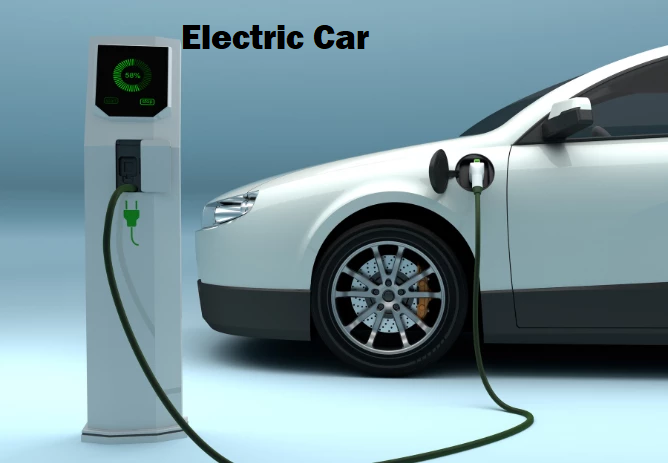The shift towards electric vehicles (EVs) has accelerated globally as more consumers seek eco-friendly and cost-efficient alternatives to traditional petrol or diesel cars. One of the most common questions potential EV buyers ask is, "How does an electric car cost?" The answer isn’t straightforward, as it depends on various factors like the type of car, battery capacity, local electricity rates, and charging habits. Let's explore the details.
1. How Much Does It Cost to Charge an Electric Car?
The cost of charging an electric car primarily depends on where you charge it. Home charging is usually the most affordable option, while public fast-charging stations can be more expensive.- Home Charging Costs: On average, charging an EV at home costs between $0.10 and $0.30 per kWh, depending on your electricity provider and rate plan. For example, if your EV battery has a capacity of 50 kWh and you need to charge it from 0% to 100%, you might pay around $5 to $15 for a full charge. This could give you a range of 150 to 300 miles, depending on the car’s efficiency.
- Public Charging Costs: Fast-charging stations, often located at shopping malls or along highways, can be pricier, costing between $0.30 to $0.70 per kWh. However, these stations allow for quicker charging, often reaching 80% in 30 to 45 minutes.
2. Is there any electric car in Pakistan?
Yes, the EV market in Pakistan is growing steadily. Some models have already made their way into the country, with manufacturers like MG, Audi, and BMW introducing their electric vehicles. The Pakistani government has also implemented policies to support EV adoption, including tax reductions and incentives for local manufacturing. One popular EV available is the MG ZS EV, which has gained traction due to its affordable pricing compared to luxury models.3. Which EV car is the cheapest?
Affordability is a key consideration for many buyers, and "Which EV car is the cheapest?" is a common question. Globally, one of the cheapest EVs currently available is the Wuling Hongguang Mini EV in China, priced at around $4,500. In other regions, models like the Nissan Leaf or Chevrolet Bolt also rank among the more affordable electric cars, typically priced between $25,000 and $30,000. In Pakistan, the MG ZS EV is one of the more budget-friendly options for buyers looking for a reliable electric vehicle.What is the #1 electric car?
The answer to "What is the #1 electric car?" depends on what criteria you’re using. In terms of popularity and market share, Tesla’s Model 3 is currently the world’s best-selling EV. It offers a combination of performance, range, and technology that appeals to a wide range of consumers. Other top contenders include the Ford Mustang Mach-E and the Volkswagen ID.4, which are gaining popularity in various markets. How does an electric car cost?" is a question many potential buyers ask, as the pricing of electric vehicles (EVs) involves multiple factors beyond just the sticker price. Here's a breakdown of the different components that contribute to the total cost of owning an electric car:1. Purchase Price
The upfront cost of an electric car is typically higher than that of traditional gasoline vehicles. This is mainly due to the expensive battery technology that powers EVs. Depending on the model, prices can range from $25,000 for budget-friendly options like the Nissan Leaf to over $100,000 for luxury models like the Tesla Model S.2. Battery Size and Range
One of the key factors that affect how an electric car costs is its battery capacity. Cars with larger batteries, which provide more range, tend to be more expensive. For example, an EV with a 75 kWh battery will likely cost more than one with a 40 kWh battery due to its longer driving range between charges.3. Charging Costs
As discussed earlier, the cost of charging an electric vehicle depends on where and how you charge it. Charging at home is generally cheaper, with rates varying by location. On average, charging an EV at home could cost between $5 and $15 for a full charge. Public fast chargers can be more expensive, with costs going as high as $30 for a full charge depending on the region and charging speed.4. Government Incentives
Many countries offer tax credits, rebates, and other incentives to encourage EV adoption. These incentives can significantly reduce the overall cost of purchasing an electric car. In some regions, buyers can save up to $7,500 or more, depending on the vehicle and local policies.5. Maintenance and Operating Costs
Electric cars have fewer moving parts than traditional gasoline vehicles, which means lower maintenance costs. EV owners save on things like oil changes, brake pad replacements (thanks to regenerative braking), and fewer engine repairs. Over the long term, this can translate into significant savings, making the "cost of an electric car" more manageable.6. Insurance
Insurance rates for electric cars can vary based on factors like the vehicle's price and repair costs. While some EVs might have slightly higher insurance premiums due to their expensive components, others may benefit from lower rates due to safety features.7. Resale Value
Electric vehicles are still relatively new in many markets, and their long-term resale value is still being determined. Factors like battery degradation and future technology advancements can impact the resale value of an EV. However, popular models from brands like Tesla tend to retain their value better than others.Read more :
1= https://bulkdrchecker.com/blogs/electric-dirt-bike-features-what-you-need-to-know/
2= https://bulkdrchecker.com/blogs/how-much-does-it-cost-to-charge-an-electric-car/
3= https://bulkdrchecker.com/blogs/how-to-wire-a-3-way-electrical-switch/

